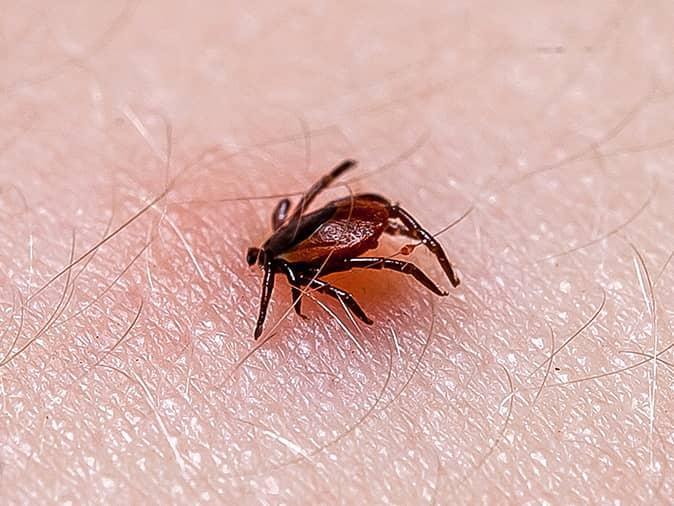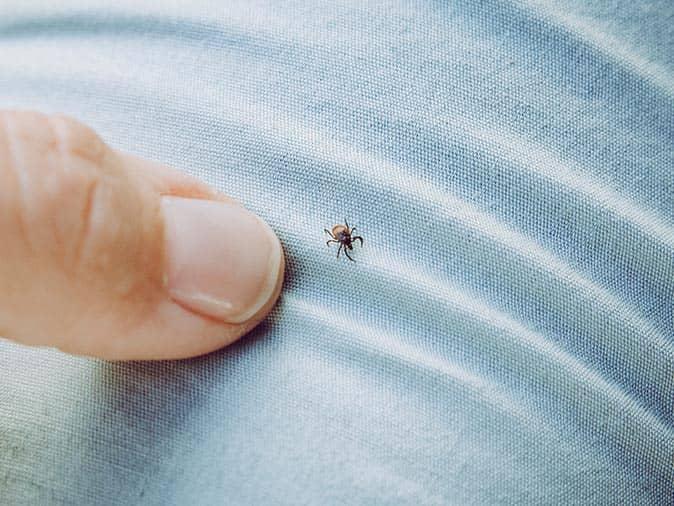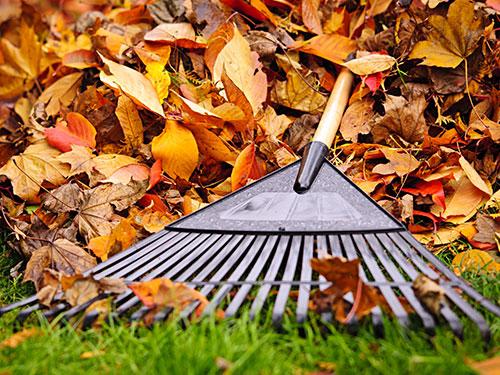Are Cicada Killer Wasps Dangerous?
You’re probably thinking giant wasps whose name includes the word “killer” are probably anything but harmless and you’d be right… Sort of. While these killer wasps are lethal to cicadas in New Jersey, they are solitary wasps that are not considered dangerous to human health. Even so it’s getting hotter here in New Jersey and that means we’re going to start hearing cicadas more and more. And once the cicadas are clicking it’s only a matter of time before these giant killer wasps will arrive.
Cicada killer wasp identification
It’s hard not to notice cicada killer wasps in your backyard. They’re quite large measuring up to 1 ¾ inches for females and 1 ¼ inches for males. They are thick-waisted wasps whose black bodies are striped with yellow across the middle and rear sections. You may also notice that they have red heads, parts of their thoraxes are red as well, and their legs are an orangish-red. Unlike other wasps when at rest, cicada killer wasp wings (there are four of them) are held straight out and not folded along their bodies.
What do cicada killer wasp nests look like?
A cicada killer wasp nest is typically located in sand. These wasps favor sandboxes, sand bunkers on golf courses, and other sandy spots but nests are also commonly found in lawns and flower beds. Females dig tunnels into the ground leaving a distinctive u-shape at the top which consists of loose sand or soil. Tunnels are typically about a foot deep and two feet long at an angle. Chambers are constructed at the bottom of the tunnel and in branches of the mail tunnel.
What do cicadas have to do with the reproduction process?
Here’s where it gets a little creepy. Cicada killer wasps only prey on cicadas and what they do with these bugs may seem like a story straight out of the sci-fi genre. Female wasps hunt for cicadas and when they find them, they will strike and stun cicadas and then paralyze them with their stingers. From there, cicadas will be dragged down the tunnels to the nesting sites. Females will deposit an egg on the legs of the cicadas and then seal the cells. Within a few days, the larvae hatch and begin feeding on the internal tissues of the poor cicadas. If that’s not enough, the larvae will overwinter within the bug until they emerge in July as adults.
How to control killer wasps in New Jersey
While cicada killer wasps are not dangerous (only aggressive dive bombers) and not a health risk, they are annoying and may create unsightly mounds in lawns and other landscaping. There is no way to prevent these wasps but once they’ve arrived the local pest control team at Arrow Pest Control will treat the holes these pests have created in order to eliminate them from your property.
You don’t have to put up with these cicada killer wasps this summer; with pest control service in Clark, Montclair and across Union and Essex counties as well as throughout our NJ service area, Arrow Pest Control is the ideal solution for your killer wasp problem. Contact us today for help eliminating wasps and other pests!

Testimonials
Request Your FREE Estimate
Additional Services
Our solutions are designed for even your toughest pest problems.
Don’t let pests affect your quality of life, here's how we can help:



